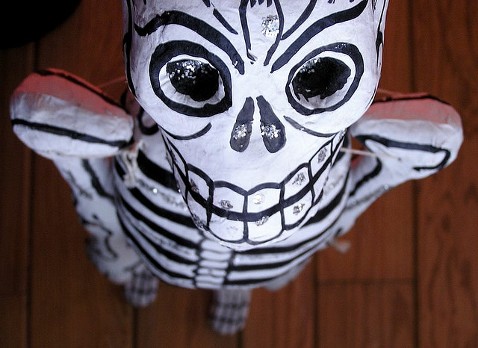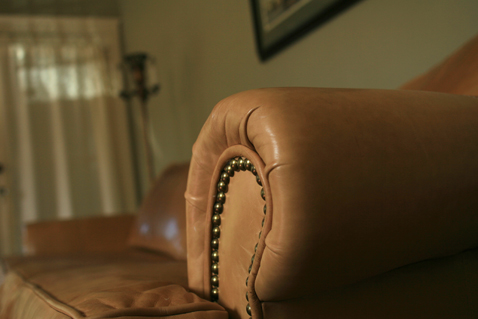Beautiful Empty
/It was a Saturday, 8:30 in the morning. I was humming down Orange Grove Boulevard on one of those rare, glorious Los Angeles overcast days. A gray fog hung around lazily while the landscape seemed to be collectively exhaling, on account of the sunless sky, which normally burns and glares and sears until this desert landscape is charred brown. Trees drooped in thanks, flowers lay still, doing their part to not jinx the unfamiliar sky. Even the sidewalks and streets were near empty, as if work and play and errands and coffee were traded in for longer sleep in darker rooms.
I was alone. My mind seemed to match the stillness with one of those rare states of near nothingness, where thoughts and ideas and people and conversations and to-do lists and worry are replaced with what is only visible to the immediate eye. Red light. Green light. Trees, houses, fence. Turn left. I relished the unusual clearness of mind.
It was in this peaceful state, this nothingness, when Margot suddenly rushed up to the surface. Her being, her name, the idea of her seems to have taken up residence in my pores and under my skin and in all of the recesses of my mind that I never knew existed. Out of all these places, she rose up, speaking to me in this nothingness. But this particular morning, it was just her.
Her. Margot. Without everything else.
There weren’t any questions about the future state of our emotions. Will we be happy again? How happy? Will our grief continue to evolve? Will the sadness ever really feel lighter? What happens if she starts slipping away? There weren’t any thoughts about friends who have let us down or those who have been there. There wasn’t any anger. There weren’t any concerns about impending situations of social anxiety. There weren’t any dark thoughts about her death and cremation. Or frightened memories of the hospital and almost losing another life. There wasn’t any confusion over the philosophical questions of life that have resurfaced. There wasn’t any anxiety over the possibility of future children or losing the living one we still have. There wasn’t any jealousy over the happy and innocent families that took their babies home. There wasn’t any hurt over insensitive comments or those who diminish or ignore our heartache. I was free of disappointment and depression and regret. In this moment, it was just my Margot, in the purest form of missing, without all the baggage that usually clouds up her absence. It was, perhaps, the first time the missing held me completely captured since the first time I held her in a darkened hospital room.
I pulled over and cried out for her as I did in the hospital. I screamed her name. I spoke to her as a Father speaks to his children. The brokenness was as raw as ever, yet it left me hanging delicately in a state of calm. The missing felt real, felt good even.
How nice would it be if grief were this tangible, this straightforward? How convenient to simply miss our kids off and on through the days and years, not having to face the other elements that come with grief?
Because so much of the time it’s not just her anymore. Somewhere along this lonely path, the worries and jealousy and concerns and confusion and hurt and anxiety and over analyzing and constant evaluating have ganged up, in an organized mob attempt to distract from the very core of what matters.
My daughter, my second child, the one who should be pulling ornaments off the tree, is missing. And, well, I simply miss her.
Are you able to simply miss your own children, or do you feel the weight of other elements of your grief? Does the simplicity of the missing grow over time, or do all of the other elements to grief get stronger?




